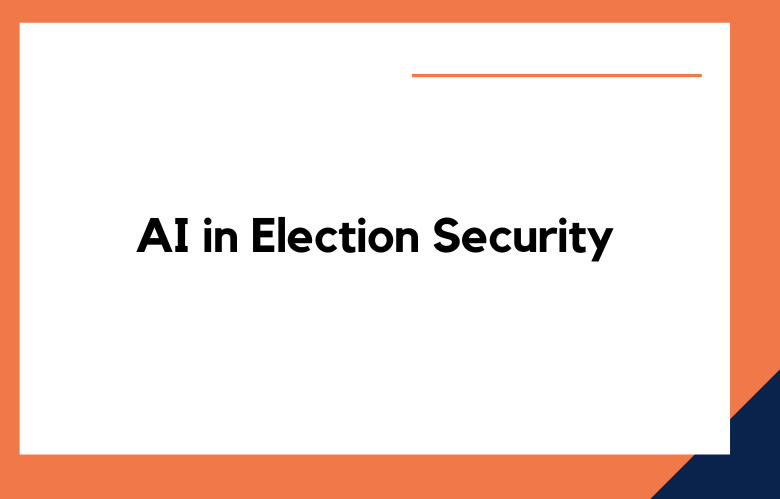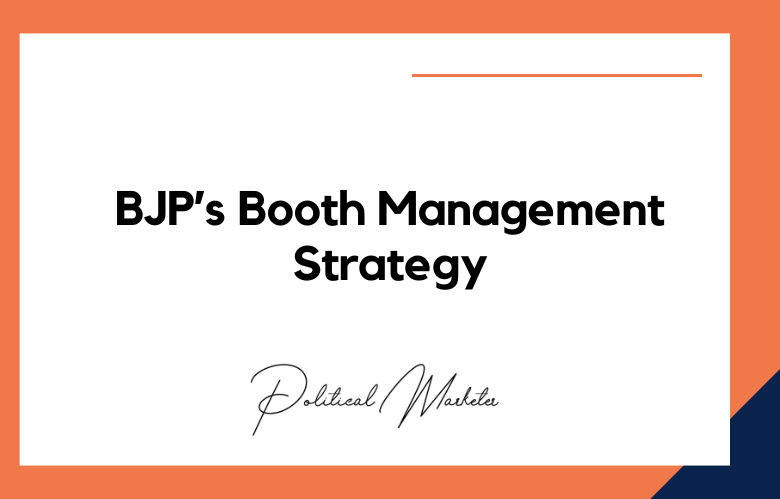Elections are a cornerstone of democracy, and guaranteeing their integrity is crucial. However, as the world becomes more connected, so do the risks of interference and manipulation. Artificial intelligence (AI) offers a promising solution for improving the security of elections and safeguarding the democratic process. We’ll explore how AI is being used in election security, the benefits it offers, and the challenges that must be overcome.
As technology advancements continue to shape the world, we must integrate this technology into various systems to enhance them. One such system is election security. Elections are a vital part of any democratic regime, and they must be conducted most transparently and securely to ensure accuracy and fairness.
Algorithmic Guardians: How AI Protects Election Security
In recent years, there has been a surge in concerns over the security of national elections across the globe.
With the rise in digital technologies, it is now easier to penetrate and manipulate the election process, undermining the democratic process. To address this issue, AI-powered technologies have emerged as a game-changer in protecting election security.
The use of AI algorithms has revolutionized the way nations conduct and secure their elections. AI algorithms have been programmed to identify and flag suspicious activities such as voter tampering or suppression.
By analyzing millions of data points in real-time, these algorithms can recognize even the most sophisticated threats to election security.
Unleashing the Power of Artificial Intelligence for Election Integrity
The issue of election integrity has long plagued democratic societies globally. With the advancement of technology, the need for secure, reliable, and efficient election systems has become increasingly pressing.
Artificial Intelligence (AI) has undoubtedly emerged as a technology that could revolutionize election integrity, but it also poses new challenges and ethical implications.
AI algorithms can be essential in detecting voter fraud, ensuring accessibility for voters with disabilities, reducing long queues at polling stations, and predicting election outcomes.
For instance, AI technology can provide real-time feedback on voting errors and mismatches, detect anomalies, and flag potential fraud cases. AI-powered chatbots can make election information more accessible to voters by providing information on polling stations, election schedules, and voter eligibility criteria.
Safeguarding Democracy: The Role of AI in Election Security
In the modern era, with the advancement of technology and the increasing role played by the digital environment in the political sphere, safeguarding democracy, particularly election security, has become a significant challenge.
In light of this, researchers and technologists have turned to Artificial Intelligence (AI) as a potential solution. AI applications in election security have been developed to enhance the transparency and validity of the democratic process, providing novel methods of detection and prevention of election fraud and an effective countermeasure against cyber criminals.
One of the most promising advantages of AI in election security is its ability to detect and prevent fraudulent activities.
By analyzing election data in real-time, AI can identify anomalies and raise red flags on votes that have been tampered with or altered somehow. For instance, AI algorithms can be trained to scan digital signatures or ballot papers to recognize fraudulent ones and highlight discrepancies in results.
The Digital Shield: AI’s Impact on Secure Elections
In recent years, advancements in artificial intelligence (AI) technology have significantly impacted the security measures available for elections. The Digital Shield is one example of how AI has been implemented to enhance the security of elections.
The Digital Shield is a cutting-edge platform that utilizes AI to analyze vast amounts of data to detect potential cyber threats and protect the integrity of the election process.
This platform can monitor social media platforms, email accounts, and voting machines, among other sources, to identify any vulnerabilities or suspicious activities that could compromise the elections.
AI vs. Cyber Threats: Enhancing Election Security
Given the increasing threat of cyber attacks on democratic processes and elections worldwide, artificial intelligence (AI) has become an essential tool for enhancing the security of these vital processes.
AI has been employed to help analyze vast quantities of data to identify potential security threats and vulnerabilities in the election infrastructure, enabling stakeholders to take swift and effective countermeasures to protect against these threats.
One key area in which AI has been particularly effective in enhancing election security is detecting malicious and fraudulent activity on social media platforms.
Through machine learning algorithms and natural language processing, AI can identify suspicious patterns of user behavior and identify potential attempts at disinformation and manipulation. This information can then be used to track and monitor malicious actors, as well as develop targeted interventions to mitigate their impact.
Democratizing Electoral Systems with AI and Security
Electoral systems play a critical role in modern democracies, ensuring that the voices and preferences of citizens are adequately represented. However, electoral systems are often plagued by various challenges, from security threats to voter suppression and fraud.
To address these challenges and improve the integrity and transparency of electoral systems, many experts are turning to artificial intelligence (AI) and advanced security measures.
One of the primary ways in which AI can improve electoral systems is through the identification and prevention of voter fraud. AI algorithms can analyze voting patterns and identify irregularities that may indicate fraudulent behavior.
This can include everything from duplicate votes to tampering with electronic voting machines. By detecting and preventing fraud, AI can help to ensure that elections are fair and free from manipulation.
Machine Minds: How AI Thwarts Election Interference
In recent years, election interference has become a significant concern for governments worldwide. Often, foreign adversaries use sophisticated cyber-attacks and disinformation campaigns to sway the opinions of voters and undermine the democratic process.
However, with the rise of AI technology, there is a renewed hope that machine minds can be leveraged to combat this threat.
One of the primary ways that AI can help thwart election interference is through the detection and removal of fake news and disinformation.
AI algorithms can analyze vast amounts of data from social media and news outlets to identify patterns and trends that suggest the spread of false or misleading information.
AI can also track the origin of disinformation campaigns, allowing governments to understand better the motivations and tactics used by those seeking to interfere in democratic processes.
Beyond Ballots: AI’s Potential in Securing the Democratic Process
The concept of democracy and the voting process is fundamental to ensuring that a government represents the will and interests of its citizens.
Unfortunately, over the years, many issues have emerged that have threatened the integrity of the democratic process. One such issue is voter fraud, which undermines the legitimacy of election results and creates distrust among the electorate.
Today, however, we are on the cusp of a technological revolution that could fundamentally alter how we approach the democratic process. Artificial intelligence, or AI, has the potential to solve many of the problems associated with voting while also increasing transparency and trust in the electoral process.
Detecting and Preventing Interference:
Election interference can take many forms, but AI can help detect and prevent it. AI algorithms can review large amounts of data, flagging suspicious activity or patterns.
This allows for early detection of potential interference and quick action to counter it. These algorithms can also learn from past incidents, improving their accuracy.
Identifying Deepfakes:
Another risk to election security is the spread of deepfakes – manipulated videos or images that appear genuine.
AI can help identify deepfakes by analyzing them for inconsistencies and anomalies a human might miss. This technology can also be used to develop more robust tools for verifying the authenticity of multimedia content.
Enhancing Voter Identification:
Ensuring that voter identification is accurate and secure is crucial for the integrity of an election. AI can help with this by improving biometric authentication processes. For example, facial recognition algorithms can verify voters’ identities, reducing the risk of fraud.
Improving Accessibility:
While security is a top priority, so is accessibility. AI can help make elections more accessible to people with disabilities or those who live in remote areas. Technology such as voice recognition or text-to-speech software can facilitate voting for people who have difficulty physically accessing polling stations.
Addressing Policy and Privacy Concerns:
As with any technology, AI in election security raises concerns about privacy and potential biases. Policy must be developed to address these concerns, ensuring that AI is used ethically and responsibly. Privacy must be safeguarded, and transparency must be prioritized to ensure voters feel confident in the election process.
Conclusion:
Artificial intelligence is poised to be a vital tool in safeguarding the democratic process by improving election security.
From detecting interference to enhancing voter identification, AI offers many benefits that can increase accessibility while reducing the risks of voter fraud and manipulation.
However, there are potential ethical and privacy concerns that must be addressed as AI becomes more widely implemented in election security. Overall, though, AI holds great promise as a means of ensuring free, fair, and secure elections for all.
Call: +91 9848321284
Email: [email protected]











